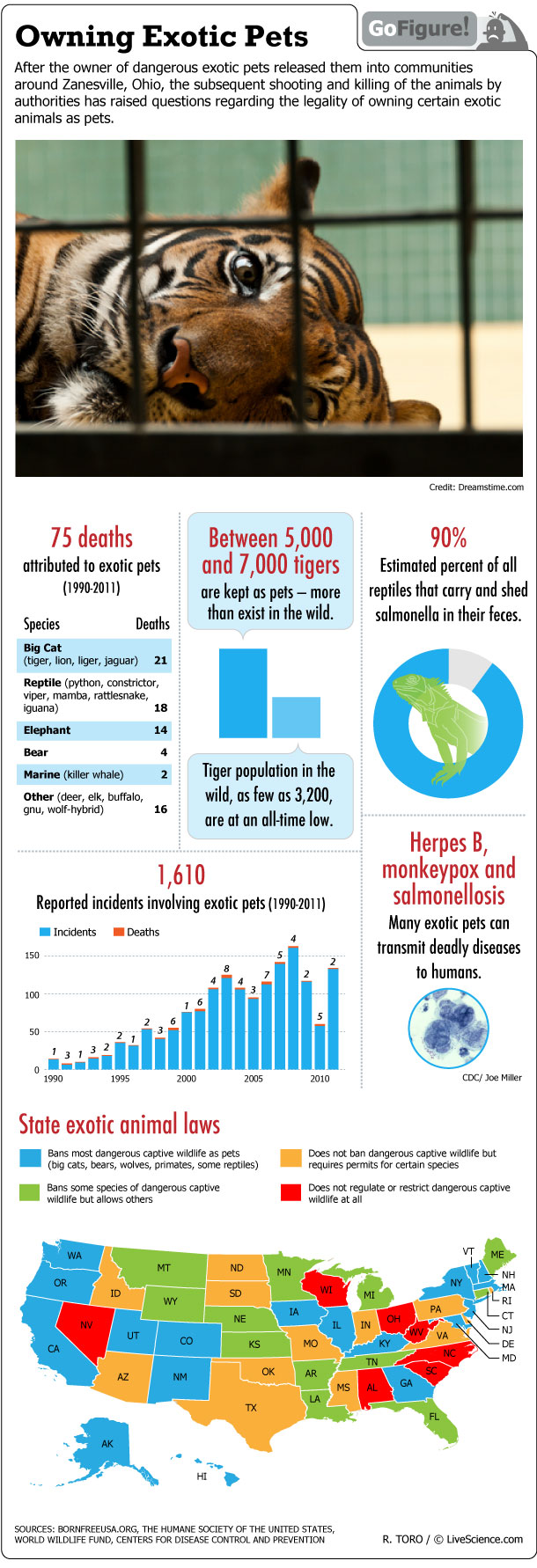Owning Wild Animals: Stats on Exotic Pets (Infographic)

The escape of 50 exotic animals near Zanesville, Ohio, last month brought into the spotlight the complex issues, as well as dangers, of keeping wild animals as domestic pets.
The incident happened Tuesday (Oct. 18) when resident Terry Thompson set loose his menagerie of lions, tigers, bears, monkeys and other animals from their cages before committing suicide. Authorities had little choice but to shoot and kill nearly 50 of the untamed animals before they injured people.
And apparently Ohio is one state that doesn't regulate or restrict keeping wildlife captive.
In addition to state-by-state variability in captive wildlife regulation in general, an exemption in the Captive-Bred Wildlife Registration Program currently allows people in the United States to own so-called generic tigers; these are tigers that can't be identified as being from one of the known subsecies (Bengal, Sumatran, Siberian/Amur or Indochinese). The U.S. Fish and Wildlife Service (USFWS) has proposed to ban this "loophole."
In addition to the possible harm that could be done to these wild animals kept in private homes, the lions and tigers and other "exotics" also pose danger to humans. Born Free USA, a nonprofit advocacy organization that strives to end the ownership of wild animals, has documented some 1,500 attacks, including 75 human deaths, escapes and other incidents involving exotic pets since 1990, according to MyHealthNewsDaily. Born Free data indicates several harmful interactions between humans and these wild animals, with one incident involving a 4-year-old boy in Texas who was hospitalized after being mauled by a pet mountain lion kept by his aunt.
These animals could also potentially transmit deadly infections to humans. For instance, reptiles can carry salmonella bacteria, and monkeys can carry the herpes B virus, both of which can be deadly in humans. Another case documented by Born Free involved a 37-year-old man who contracted the fungal disease blastomycosis after being bitten by his pet kinkajou, a rain-forest mammal.
In the end, exotic pets are not safe to keep in people's homes, advocates say.
Sign up for the Live Science daily newsletter now
Get the world’s most fascinating discoveries delivered straight to your inbox.

